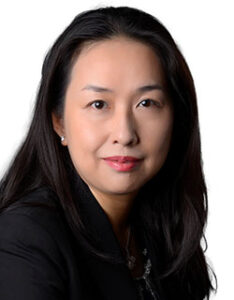Wealth Management Connect (WMC), a cross-border investment scheme linking Hong Kong, Macau and Guangdong province, got off to a smooth start on 19 October, unlocking opportunities for banking and asset management in the region.
The programme enables residents in Hong Kong, Macau, and nine cities in Guangdong province including Shenzhen and Guangzhou, to make cross-border investments in wealth management products through participating banks. WMC recorded a transaction of RMB33.12 million on its market debut, according to the People’s Bank of China (PBOC).
WMC is part of China’s blueprint to develop the Guangdong-Hong Kong-Macau Greater Bay Area (GBA) into an international economic powerhouse.
The GBA is one of China’s richest regions, with a combined GDP of USD1.6 trillion, close to that of Canada or South Korea in 2020. It is also home to many wealthy families. With a population of more than 86 million, the region accounted for over one-fifth of China’s high-net-worth households with assets amounting to RMB10 million (USD1.56 million) or more, according to the Hong Kong Monetary Authority (HKMA).

Partner and head of asset management and environment
Dentons Hong Kong
“The immense market size will no doubt spur the development and offering of more wealth management products and services, which presents tremendous opportunities for the banking and wealth management industry, as well as supporting infrastructure and professionals, including lawyers providing related legal services,” said Vivien Teu, partner and head of asset management and environment, social and governance (ESG) at Dentons Hong Kong.
The regulator has set an initial quota of RMB300 billion for total fund flows through WMC, with a quota of RMB1 million for each individual investor.
It is estimated the scheme will generate about RMB3.2 billion in annual wealth fees for banks, according to OCBC Wing Hang Bank. A total of 20 banks in Guangzhou and Shenzhen, and 19 Hong Kong lenders, have received the green light to sell financial products in GBA.
WMC is of particular relevance to the retail fund industry in Hong Kong, which has been following the scheme right from the consultation stage, said Li Ming-chiu, a partner at Deacons. “To take advantage of the scheme, we have seen that more fund managers have chosen to set up new products with a Hong Kong platform, in particular with the open-ended fund company structure, to benefit from the Hong Kong government’s grant scheme,” he said.
However, Teu said there may be unique challenges when offering cross-border wealth management products and services, given the differences in terms of legal and tax systems, regulatory frameworks and environment, market practice, market players, investors’ investment knowledge and sophistication.

Partner
Deacons
Li said the major challenge for banks and financial product providers was the difference in the preferences and habits between offshore and onshore investors. “Banks and product providers need to pay attention to what their target investors are looking for in an investment offered from the other side of the border,” he said. “Some studies have pointed out that product providers will need to provide an ‘attractive differentiation’ to trigger cross-border investment.”
Participating banks and product providers should also be aware of the restriction on marketing funds. “For a southbound customer not present in Hong Kong, banks can provide general information about the WMC without any element of solicitation, or upon an investor’s specific request, provide information on the services and individual products under the WMC,” said Li. “Banks cannot proactively market their southbound services to the mainland public, provide them with a list of products, or induce them to open an investment account.”
Retail investors should make sure that they understand the legal documents provided by distributors, taking other circumstances into account such as taxation, before making an investment, Li added.
“Investors should pay attention to the fact that the products are not registered with the regulator in the investors’ own jurisdiction, and differences may exist in the features and underlying investments as compared to local products which they have experience in,” he said.
As WMC continues to develop, Li expected more products would be added in the scheme, including higher-risk products such as sector funds, high yield and equity funds.
After the WMC market matures, it may be possible for the scheme to evolve into a model that is closer to the direct offering of more cross-market products or services, said Teu. “Such a model may better meet investors’ future wealth management needs for a holistic banking relationship that covers investment advisory services on onshore and offshore products, or onshore and offshore portfolio management,” she said.





















